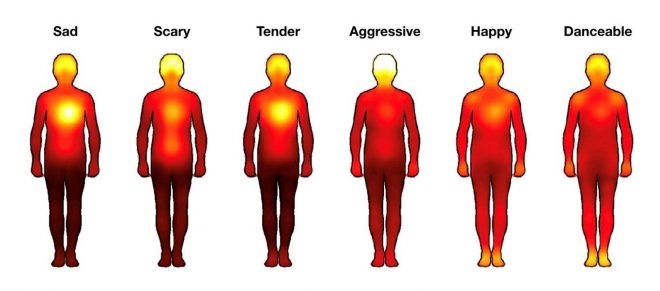 News
News
Music sparks shared emotions and physical responses globally
“Happy and danceable music was felt in the arms and legs, while tender and sad music was felt in the chest area”
A new research conducted at Finland's University of Turku PET Centre has revealed that music universally triggers similar emotional and physical responses.
The visceral impact of music is undeniable; a catchy tune can irresistibly compel us to groove along. It's been found that music has the power to engage our autonomic nervous system and even send shivers down our spine. This recent study from Finland's University of Turku PET Centre illustrates that music transcends cultural boundaries, eliciting comparable physical reactions globally.
“Music that evoked different emotions, such as happiness, sadness or fear, caused different bodily sensations in our study. For example, happy and danceable music was felt in the arms and legs, while tender and sad music was felt in the chest area,” says Vesa Putkinen, Academy Research Fellow.
Listeners from both Western and Asian backgrounds experienced similar emotional and physical impacts from music. These sensations were consistent with the emotions stirred by the music.
“Certain acoustic features of music were associated with similar emotions in both Western and Asian listeners. Music with a clear beat was found happy and danceable while dissonance in music was associated with aggressiveness. Since these sensations are similar across different cultures, music-induced emotions are likely independent of culture and learning and based on inherited biological mechanisms,” explains Professor Lauri Nummenmaa.
“Music’s influence on the body is universal. People move to music in all cultures and synchronized postures, movements and vocalizations are a universal sign for affiliation. Music may have emerged during the evolution of human species to promote social interaction and sense of community by synchronising the bodies and emotions of the listeners,” Putkinen adds.

This study was a collaborative effort among Finland's Aalto University and University of Turku and the University of Electronic Science and Technology of China (UESTC), utilizing an online survey. Over 1,500 participants from Western and Asian backgrounds assessed the emotions and physical sensations induced by various Western and Asian musical pieces.
Funded by the Research Council of Finland, the study's findings have recently been published in the journal Proceedings of the National Academy of Sciences of the United States of America (PNAS).


